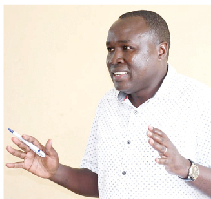Campaign against triple adolescent HIV threat unveiled
By Irene.Githinji, November 7, 2023There is a growing concern over adolescent pregnancies and Sexual and Gender Based Violence (SGBV) in relation to new HIV and Aids infections, the National Syndemic Diseases Control Council (NSDCC) has said.
Data from NSDCC shows that adolescents aged between 10 and 19 account for 62 new infections that occur weekly, 18 per cent of all antenatal care attendances and 36 per cent of all SGBV cases.
Statistics have also shown that there were 22,154 new infections in 2022, out of which 17,680 were adults and another 4,464 were from children aged 0-14 years while 41 per cent of adult new infections occur among adolescents and young people aged 15 – 24.
It is against this backdrop that the government is implementing triple threat campaign, a robust whole government and society approach to incorporate all stakeholders towards mitigating this growing trend.
NSDCC Officer in-charge of County Operations Dr Douglas Bosire said the government embarked on the campaign to among other issues, facilitate a coordinated approach to transition young people from schooling to work and build a resilient platform.
“We are concerned about the issues of adolescent pregnancies and SGBV in relation to new infections because we have noticed that in counties where we have high number of adolescent pregnancies and SGBV, we also have high number of new HIV infections,” Bosire said during a media stakeholders meeting in Nairobi yesterday.
On the overall, out of the 1.37 million of population currently living with HIV, 145,125 are Adolescent Young People (15-24) while 88,853 are adolescents aged 10-19.
Although the country is on track towards reduction of new HIV infections, adolescents and young people aged 15-24 continue to be disproportionately affected by HIV.
Ten counties accounted for over half (53 per cent) of new HIV infections in 2022.
Bosire said the triple threat programme is facilitating an enabling environment to enhance access to treatment, care, mental health and justice for survivors of SGBV, pregnant children living with HIV as well as enhancing systems of re-integration for SGBV survivors and return to school for adolescent mothers.
“We might fall into a situation where we think that HIV and Aids is no longer a threat but based on the numbers we see, we are doing well on the battle field but still have not won the war,” Bosire said.
More Articles

